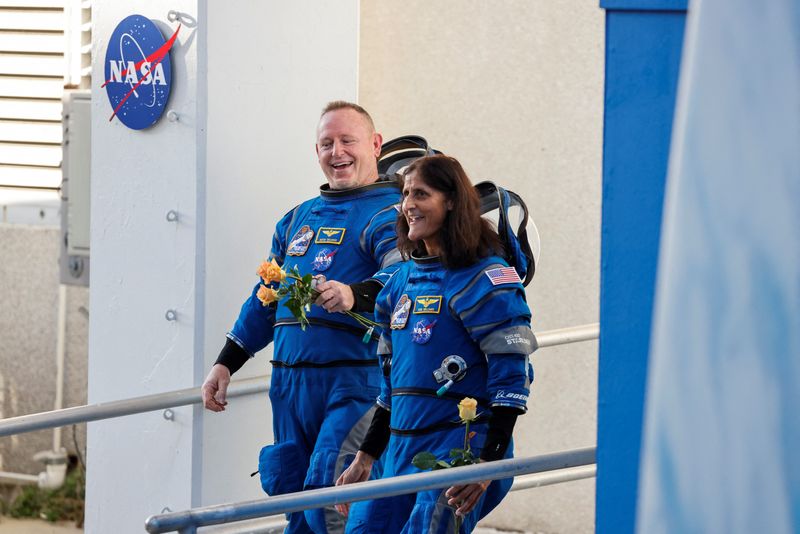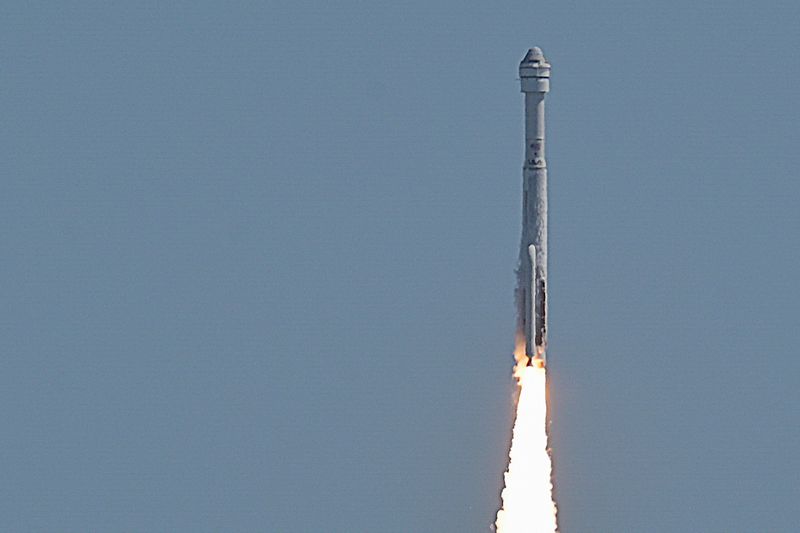By Joey Roulette
WASHINGTON (Reuters) -Boeing's Starliner spacecraft will not return its two astronauts from the International Space Station until after engineers spend "a couple weeks" testing to investigate the spacecraft's thruster issues, a NASA official said on Friday.
Starliner, which has been docked to the ISS since June 6 after ferrying its first crew of astronauts there, has had its test mission drawn out after a series of issues involving its thrusters and leaks of helium, which is used to pressurize the thrusters.
A joint NASA-Boeing team focusing on the thruster issues have planned ground tests at the White Sands Missile Range in New Mexico to test fire the same kind of Starliner thrusters currently in space.
"This will be the real opportunity to examine the thruster, just like we've had in space, on the ground for detailed inspection," NASA commercial crew chief Steve Stich told reporters during a news conference.
Starliner's June 6 docking to the ISS was delayed for an hour because five of its 28 maneuvering thrusters had failed. Boeing (NYSE:BA) scrambled to tweak the propulsion system's software to get four of the thrusters working again and proceed with the docking with the ISS, some 250 miles (400 km) in space.
The thruster that remained off failed for reasons different from the other four. NASA and Boeing's investigation of all those failures have prolonged Starliner's mission, which was originally expected to last some eight days.
Boeing's Starliner chief, Mark Nappi, also on the call with reporters, criticized news reports that said Starliner and its two astronauts are "stuck" in space, prompting pushback from reporters who argued NASA and Boeing should be more transparent about the mission.
"From being a representative of Boeing, a representative of the Starliner program, it's pretty painful to read the things that are out there," he said. "We're not stuck on ISS. The crew is not in any danger."

Though NASA and Boeing have said Starliner is capable of returning the astronauts to Earth in the event of an emergency on the ISS, the capsule is not approved to fly home under normal, non-emergency circumstances until its thruster issues are solved or at least better understood after the upcoming tests.
Boeing has long struggled with Starliner, whose development has been marred with delays, management issues and engineering challenges that have cost the company $1.5 billion in budget overruns.
